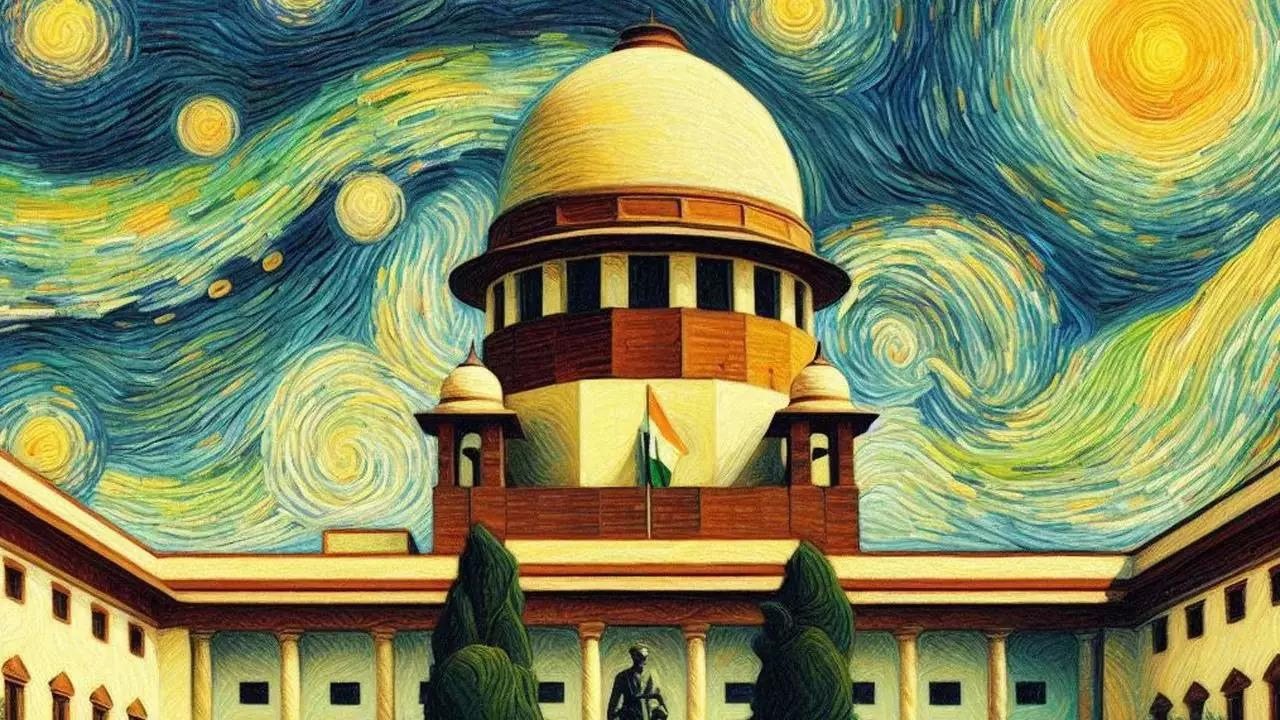Supreme Court Slams Misuse of Temporary Contracts: A Wake-Up Call for Employers
Are you tired of hearing about unfair employment practices? Do you believe that everyone deserves job security and fair treatment? Then buckle up, because the Supreme Court of India just delivered a landmark ruling that's sending shockwaves through the employment landscape, impacting temporary workers, gig workers, and the future of labor rights. This isn't just another court case; it's a game-changer.
The Supreme Court's Strong Stance Against Contract Abuse
The recent Supreme Court decision has taken a powerful stand against the rampant misuse of temporary employment contracts. For too long, companies – both in the private and public sectors – have exploited a loophole: using temporary contracts to avoid offering benefits, security, and fair wages to workers who perform essential and long-term duties. This tactic has been particularly prevalent in the rise of the gig economy, a sector characterized by its unpredictable nature, volatile job opportunities and lack of regulation.
The Case of the Central Water Commission Sweepers
The case that brought this issue to the forefront involved sweepers who worked for the Central Water Commission (CWC) for two decades as temporary workers. Despite their continuous, long-term service and the essential nature of their roles, they faced termination due to their temporary status. The court found the dismissal to be unfair. The long-term nature of their work, combined with the lack of any evidence of any malfeasance or legal concerns in their recruitment rendered such dismissals unethical and unlawful.
The Wider Implications for Workers' Rights
The Supreme Court's judgment highlights a significant issue: the systemic exploitation of workers via temporary contracts. It is not just limited to a few cases, but reflects the bigger picture: unfair labor practices that violate basic human and workers' rights. This practice often results in workers facing precarious employment, with limited or no benefits and no sense of job security. They are often paid less than their permanently-employed counterparts and have very few chances for professional development. This judgment goes beyond mere individual cases; it addresses a systemic issue that undermines India's labor standards.
The Impact on the Gig Economy
The ruling sends a strong message to all employers—particularly within the rapidly growing gig economy. The gig economy, while providing flexibility, often lacks essential worker protections, leading to exploitation of vulnerable workers who face uncertain employment, inconsistent incomes, lack of employee benefits, and reduced social security. This Supreme Court decision is an opportunity for reform; and more precisely, an opportunity for fairer treatment of gig workers who are now beginning to have their voices heard by India's judiciary and legislature.
A Need for Change in the Gig Economy and Public Sector
The judgment calls for governmental and private entities to embrace fair employment practices, a concept actively supported by organizations like the International Labor Organization. It implies that if the state's own practices are inconsistent with those rights, then a considerable effort is needed to overhaul a system failing vulnerable employees. India, being a founding member of the ILO, is obligated to ensure employment stability and equitable treatment for all its workforce.
Public Sector Responsibility
The court explicitly criticized public sector institutions for engaging in these exploitative practices. Public sector entities are supposed to act as role models, upholding standards of fairness and justice. When they fail to do so, it erodes public trust and normalizes unfair labor practices across all sectors. This underscores the need for transparency, accountability, and fair treatment within the public sector workforce, sending ripples throughout the Indian employment market.
Moving Forward: A Call for Fair and Stable Employment
This case is not simply about temporary workers; it's a clarion call for comprehensive employment reform in India. It shows how temporary contracts are increasingly being used to dodge obligations to employees. The court emphasizes that government institutions need to exemplify fair employment policies, creating lasting, stable employment, not merely fleeting temporary jobs. Fair wages and employee benefits should be standard, not exceptions.
Ensuring Fairness and Regularization
The court's directive that the CWC must regularize the sweepers with back wages is pivotal. This sends a message of accountability. When employers refuse regularization despite long-term service and absence of malfeasance, it displays gross unfairness. This ruling offers hope to temporary workers in similar situations nationwide, motivating them to challenge unfair treatment in court. The Court’s message is unequivocal: ‘We will not allow contract workers to be perpetually vulnerable and exploited; if their job duties and commitment suggest otherwise, a formal employment contract should follow.
Take Away Points
- The Supreme Court has struck a blow against the misuse of temporary employment contracts.
- The ruling has significant implications for both the private and public sectors.
- The decision underscores the need for fairer treatment of workers in the gig economy.
- It is a landmark case for workers’ rights in India and beyond, emphasizing the long-term and wide-reaching nature of its repercussions.
- Public sector entities need to lead by example and adopt fair employment practices, prioritizing worker's rights.




